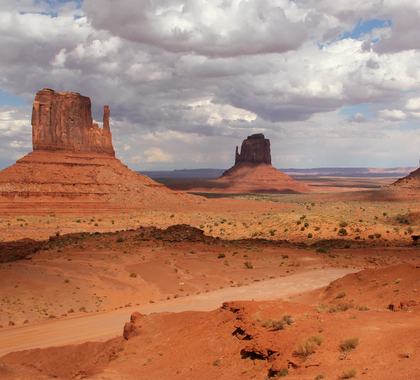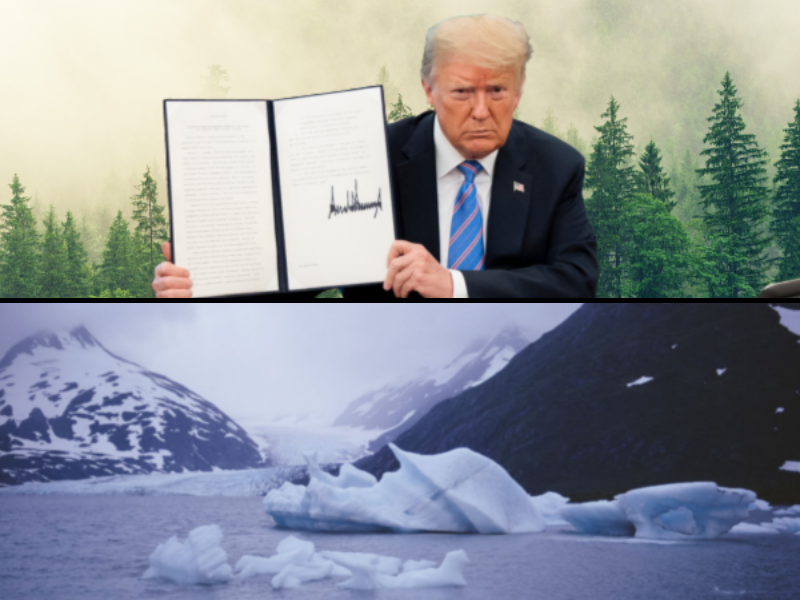Utah’s congressional delegation has for three years been developing legislation that would conserve large swaths of wilderness in Utah and open up some land to energy exploration and recreation.
But after years of negotiations, a coalition of tribal leaders and environmental activists have asked President Barack Obama to label much of the land at issue a national monument, throwing a wrench into a plan that has taken years to develop.
Introduced in July by Utah Reps. Rob Bishop (R) and Jason Chaffetz (R), House Resolution 5781, the Utah Public Lands Initiative (UPLI), would conserve 4.6 million acres of land, creating 11 new conservation areas and 41 wilderness areas. The bill would also open up more than 1 million acres to development and new recreation opportunities, reform the energy permitting process, and transfer some federal lands to the state. In all, the bill covers 18 million acres of land across seven Utah counties.
The federal government owns 66 percent of the land in Utah, limiting the state’s tax base and its control over resources. Though many Western states have fought for more control over the federal lands within their borders over the past several decades, Utah has led this fight recently, passing a law in 2012 demanding the federal government turn over millions of acres of land within its borders.
Bears Ears Dispute
Environmentalists’ oppose the bill and instead are pushing Obama to use the 1906 Antiquities Act to unilaterally create the 1.9-million-acre Bears Ears National Monument. Under the Antiquities Act, presidents can unilaterally deem land a national monument. Such a designation often results in land-use restrictions.
Supporters of UPLI have complained out-of-state environmental interests are pushing the national monument designation and ignoring local concerns. In a joint statement, Bishop, Utah Gov. Gary Herbert (R), and Sen. Mike Lee (R-UT)—who is sponsoring the companion bill to HR 5781 in the U.S. Senate—addressed this concern, saying, “We have listened to the people of San Juan County and the verdict is clear: the people who live near Bears Ears do not want Washington, DC to create a Bears Ears monument.”
Nicolas Loris, a fellow at The Heritage Foundation, says outside interests often play a large role in land-designation debates.
“That’s what I think is often misleading about these designations,” says Loris. “The public thinks [demand for a monument] is rising from the people who live on or near the land, when a lot of times it’s environmental organizations that want to prohibit energy development.”
Reforming Land Law
The Bears Ears issue and UPLI are just a small part of the overall debate over who can best manage Western lands and their resources. Half of the land in the West is federally owned.
Loris says it is time for the federal government to end federal control over so much of the Western states.
“It’s long past time we’ve gotten rid of this unilateral [national monument] authority to essentially take land and restrict its use without giving state and local governments and private individuals any say in what happens,” said Loris. “It’s time to begin a process to identify the lands that should be given or sold to the people and/or to the states.”
‘Blatant Inequality’
Utah state Rep. Ken Ivory (R-Salt Lake County), who sponsored the 2012 state law demanding the return of federal lands to Utah, agrees it is time for change in land ownership throughout the Western United States, but he does not believe UPLI goes far enough.
“The unparalleled American promise is based on a simple recipe: secure the life, liberty and property of the people and they will produce peace and prosperity,” said Ivory. “So long as the federal government violates this promise and treats Western states and people unequally, we will not realize lasting peace and prosperity as a nation.
“The public lands initiative attempts to address some of the symptoms of this blatant inequality of federal control over 50 percent of Western lands, however, until we restore the full equal protection of law and fundamental fairness to Western states, thereby enabling Western people to determine their own destiny, the root problem of federal overreach will continue as a cancer to the American promise,” Ivory said.
Matthew Anderson, a policy analyst for the Coalition for Self-Government in the West, a project of Sutherland Institute, says UPLI is a step forward for Utah residents.
“Bishop’s bill is one of the first attempts to offer farsighted compromise on public lands, taking into account the concerns of Native American tribes, the oil and gas industry, ranchers, environmental interests, and residents of the seven affected counties,” Anderson said. “UPLI isn’t perfect, but it is good policy crafted in the American spirit of cooperation, and abandoning it for the sake of political victory does a disservice both to Utahns and to the American political system.”
Ann N. Purvis ([email protected]) writes from Atlanta, Georgia.




